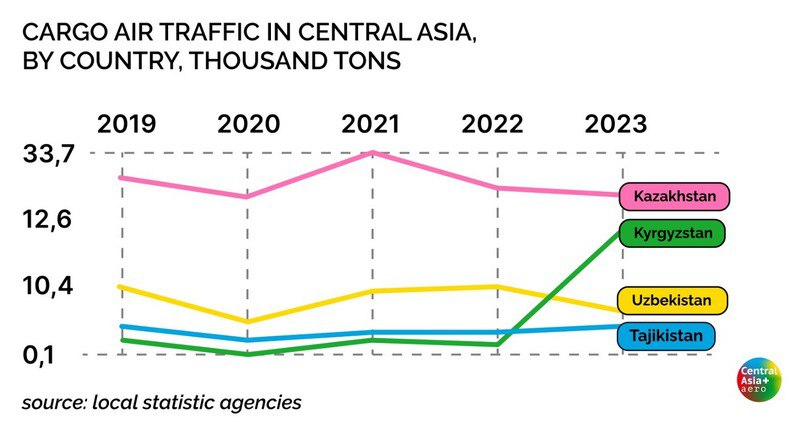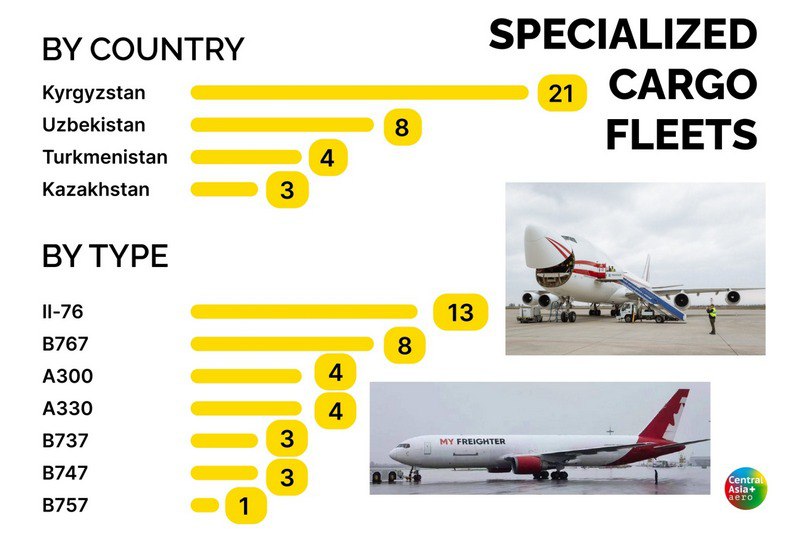Kyrgyzstan has emerged as the frontrunner in Central Asia's air cargo transportation sector, with a 40-fold increase in cargo traffic in 2023, reaching 12,600 tons. This surge has propelled Kyrgyzstan to second place in cargo volume in the region, surpassing Uzbekistan and trailing only Kazakhstan.

Despite this impressive growth, Kyrgyz airlines face a setback: they are blacklisted by the European Union, preventing flights to Europe. This limitation contrasts with the broader potential of Kyrgyzstan's neighbors, who have yet to fully capitalize on their roles as transit hubs for air cargo.
An analysis by CentralAsia+ Aero reveals that Kazakhstan and Uzbekistan, the two largest countries in the region, have seen reductions in air cargo traffic following the peaks of 2021-2022. Meanwhile, Tajikistan increased its air cargo volume by 20% in 2023, though it remains below pre-crisis levels from 2019.

Kyrgyzstan's dominance in the air cargo sector is further highlighted by its share of the regional freighter fleet. The country's cargo fleet includes 21 freighters, with 60% of Central Asia's cargo aircraft under Kyrgyz control. Uzbekistan follows with eight cargo planes, Turkmenistan has four, and Kazakhstan operates three. Tajikistan currently lacks a dedicated cargo fleet.
The region's air cargo fleet is diverse, with more than a third comprising Soviet-era Ilyushin Il-76 transport aircraft. Western aircraft, such as the Boeing 767F, are increasingly popular, with eight in operation and expected to grow. Airbus contributes four A300Fs and four A330 freighters to the fleet.
In addition to its fleet size, Kyrgyzstan leads in the number of specialized cargo airlines, with seven dedicated cargo carriers compared to Uzbekistan's three and Kazakhstan's one.
Follow Daryo's official Instagram and Twitter pages to keep current on world news.
Comments (0)